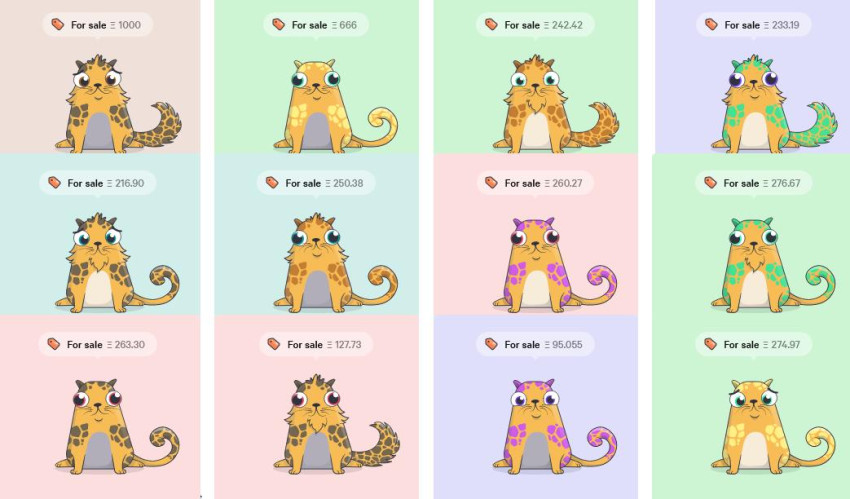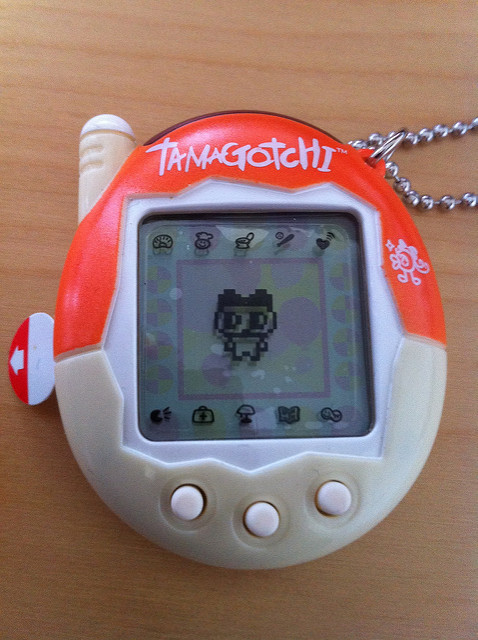
Crypto-Kitties are the new hype
It's becoming a hype among online gaming fans: CryptoKitties. This is the first popular game to operate on a blockchain platform. Players buy a virtual cat using the Ether cryptocurrency and can trade their cats or have them mate with other cats. The game is so popular that there is a serious risk of the Ethereum network becoming overloaded.
Some people are currently willing to pay serious money to buy a virtual cat on the Internet. No, we're not joking.
On 28 November, the US-Canadian company AxiomZen launched the online game known as CryptoKitties. Over the past few days, online gamers and cryptocurrency fans have been drawn to the game en mass. According to tech website TechCrunch, the first cat was sold for approximately 246 Ether (equal to around 91,000 Euro today, though the price fluctuates). Ether is the second-largest crypto coin, after Bitcoin.

This hype is somewhat reminiscent of the Tamagotchi, a virtual pet on a simple LCD screen, which suddenly became popular in the late 1990s (and is enjoying a revival, as an App). The main difference is that a Tamagotchi was stand-alone, while a CryptoKittie exists on a computer network, connected with all other players.
How does it work? The AxiomZen developers bring a new cat to life once every 15 minutes (until November 2018, a year on from the start of the game). To put it more precisely: a fully automated system creates the cats. After all, CryptoKitties operates on the blockchain called Ethereum. This platform is extremely suitable for the establishment of smart contracts: contracts in which all agreements and rules are pre-programmed, therefore no longer needing any trusted third party (public notary, solicitor, bank). This makes it almost impossible for such contracts to be tampered with.
BREEDING
The cats are then sold on the CryptoKitties marketplace, for a price which gradually drops. Players can buy them and pay for them using Ether. While that may sound somewhat pointless, there is a gaming element involved. An individual cat has no purpose, but can be used for breeding purposes. The player needs to find another owner who is offering his or her cat for breeding.
And here's where the game becomes fun. The developers have programmed the characteristics of each cat (colour, whiskers, beard, stripes / no stripes) in a type of DNA. This is a 256 bit genome, which is mixed with the genome of the other cat upon breeding. And so a kitten is created, with unique new characteristics. Many of the characteristics are not immediately visible however, being concealed in the cat's DNA, as can be read in the FAQ of the game. They therefore only become apparent once your cat has mated with another cat.
AUCTION
Players can also simply trade their cats by advertising them for sale at an automated auction. Some of the animals have unusual characteristics, which naturally results in greater demand. The first generation cats are also extremely popular. Players cannot themselves make any changes to their cat (except its name). Everything is embedded in the DNA.
And so the game is currently resulting in a modest hype. According to TechCrunch, players have paid an average 98 Euros for the cat of their choice. So you see not only players in the game to breed their cats, but also other players who participate just to speculate on the value of the animals.
BITCOIN
And that, in turn, is reminiscent of the current run on bitcoins, the best known crypto coin. In recent weeks, the price of this currency has soared. It is a signal, on the one hand, that more and more people are gaining confidence in a currency that is not guaranteed by a central bank. On the other hand, there are people who speculate on the value of bitcoins. Sooner or later, they will leave the market, which could well cause the price to plummet.
INCONVENIENCE
The CryptoKitties have become so popular so quickly that they (currently) account for 12.8% of all transactions on the Ethereum network (versus 4% five days ago). This has slowed the speed of transactions, according to Bloomberg. The result is inconvenience for all users of the network, therefore also for the more serious users.
Another problem of all cryptocurrencies is the fact that they cost a great deal of energy to produce (read: 'Bitcoin turns out to be very energy intensive'). Programmers are working hard to find a solution for this bottleneck. They have little choice, if blockchain platforms are to be scaled up. And that is certainly the intention, if they are to play any significant role (read: 'Blockchain, from hype to useful technology').
If you found this article interesting, subscribe for free to our weekly newsletter!






